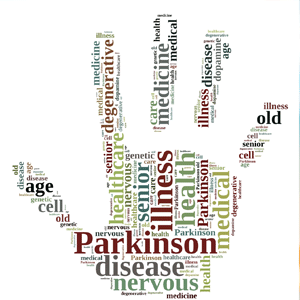Living with Chronic Illness
Living with Chronic Illness

Living with chronic illness can sometimes feel like an insurmountable challenge. It can be demoralizing, scary, isolating, and frustrating. But there is hope. Read on to learn several helpful strategies to cope with chronic illness.
The Serenity Prayer’s suggestion to “accept the things we cannot change” and to try to “change the things we can” may be helpful—even for those not inclined to prayer—when living with chronic illness. Whether you have multiple sclerosis, diabetes, heart disease, celiac disease, an autoimmune condition, HIV, or another illness, there are usually some aspects of the condition that can be changed and others that cannot. Identifying these things, and acting on them, may bring more peace and a sense of agency back into your daily life.
Changing What You Can
Focusing on changing the things you can is an excellent place to begin. Depending on your illness, this may include things like getting regular exercise, avoiding certain activities or foods, tracking blood glucose levels, regular visits with your doctors, or managing activity levels. For some people with chronic illness, taking these steps may seem futile—like a “drop in the bucket”—in your overall health picture. However, without trying you’ll never know how helpful they could be. It’s worth a shot!
Try being systematic in your application of any changes and be sure to allow enough time to see if they affect how you feel. For example, avoiding certain foods for a few days might not make much of a difference, but after a couple of weeks you might see some improvement. When trying a new strategy, consider keeping a log of your symptoms—that way you can look back on real data to decide if something is working or not. Also, remain open to the possibility that even if a recommended change didn’t help a couple of years ago, it might help now. You’ll never know until you try.
Accepting What You Cannot Change
Accepting what you cannot change about living with chronic illness is easier said than done. This is especially true if you experience a long-lasting decrease in your quality of life—like needing to give up a favorite activity, or having difficulty walking. These are not easy changes to accept! Remember that your doctors are a resource, and consider talking with them about how long a given problem might last.
There’s not one simple way to make yourself accept the more difficult aspects of living with chronic illness. However, many people report that acceptance comes from a combination of three things: recognizing that something cannot be changed, consciously working to adjust expectations, and actively seeking more satisfaction and meaning in the things you can do.
Many people find it useful to understand and adjust to the “new normal” created by the illness. This change in perspective gets us out of the habit of comparing how different your life is now versus when you felt better. This shift helps move your focus from the past to the present.
The Value of Mindfulness
Another approach that may help you accept the difficult aspects of living with chronic illness is mindfulness. Mindfulness helps us become more aware of the moments when we are rejecting the current situation, rather than accepting it. Mindfulness also aids in letting go of unhelpful thought patterns about chronic illness.
In addition to practicing mindfulness, other ways to cope with unhelpful thought patterns include challenging negative self-talk. What you tell yourself plays a significant role in your emotional relationship with your illness. Perhaps you’ve found yourself thinking things like, There’s nothing I can do or This is totally unfair or This is a hopeless disaster. Healthier self-talk could include statements like, It doesn’t feel like it’s helping, but the doctor said I should take a walk once a day, so I owe it to myself to do that. Or, It may not be fair that I have this condition but I want to handle it as best I can to be an example to those around me. Or, Things seem bleak right now, but I know this illness has its ups and downs, and this is just one of the downs. These examples won’t apply in every case, but they illustrate how the messages you tell yourself can help you become more accepting of the impacts an illness has on your life.
The Importance of Social Support
Although it can be difficult, don’t underestimate the power in asking for help from those around you when you’re having a hard time. It’s also important to be willing to accept offers of assistance from others.
For example, if your chronic illness makes it impossible for you to drive, consider asking a friend or family member to give you a ride to the events that boost your quality of life. Sometimes the help we need is practical (like having a friend bring you groceries) and sometimes it’s emotional (like talking through your feelings before a difficult procedure). It’s valuable to share the inner aspects of living with your illness with someone you trust. If you don’t have a person like that in your life, consider finding a support group that is specific to your illness. There are many good resources available for online or in-person support groups for multiple sclerosis, Crohn’s disease, epilepsy, cancer, and many other illnesses.
Anyone who lives with chronic illness knows it isn’t easy. But it’s important to remember that you hold the ability to improve your situation by focusing on changing what you can, accepting what you can’t, and relying on others when you need to.












